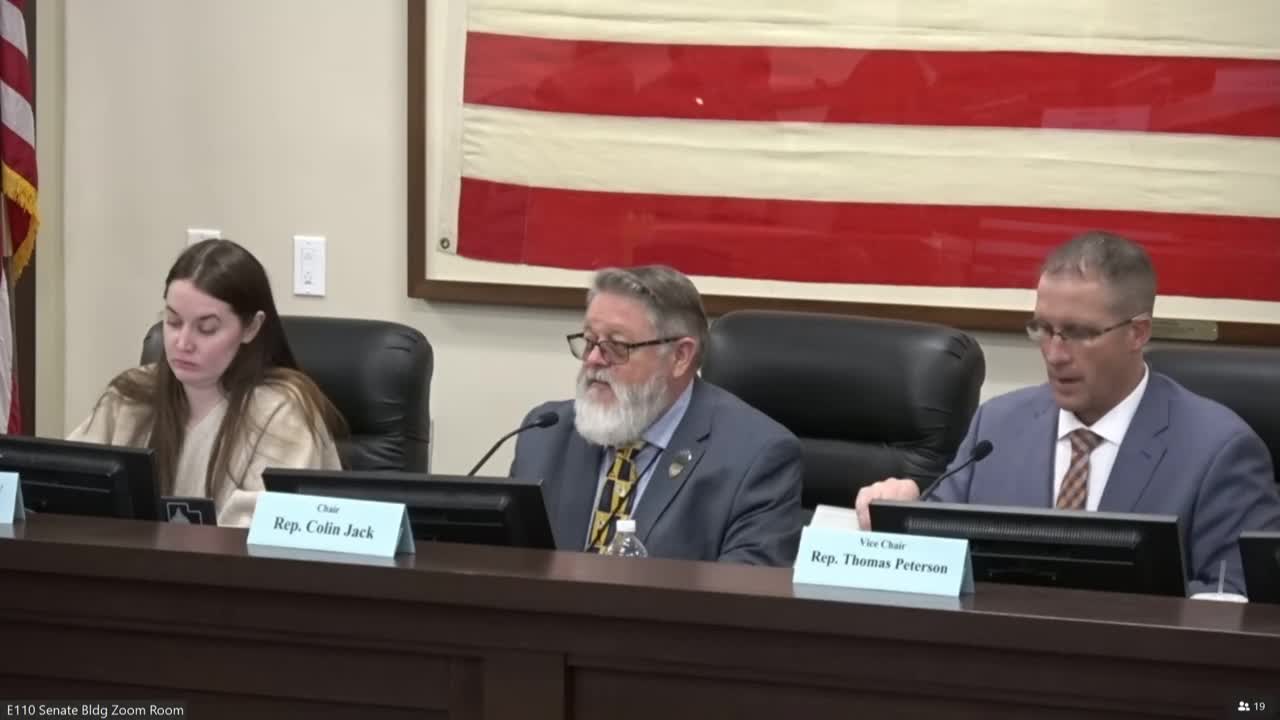Committee advances bill to create Utah Energy Council, energy zones and advisory bodies for nuclear and other energy projects
Get AI-powered insights, summaries, and transcripts
Subscribe
Summary
A Utah legislative committee unanimously adopted the first substitute to House Bill 249 and gave the bill a favorable recommendation after a hearing in which sponsors and state officials described a state-managed framework to enable nuclear and other large energy projects.
A Utah legislative committee unanimously adopted the first substitute to House Bill 249 and gave the bill a favorable recommendation after a hearing in which sponsors and state officials described a package of policy changes intended to prepare Utah for potential nuclear power and other large energy projects.
Representative Albrecht, the bill sponsor, told the committee that House Bill 249 — titled "nuclear power amendments" in the bill text — sets up a Utah Energy Council to administer an Energy Development Investment Fund, map designated electric energy development zones and coordinate research and workforce efforts. "The bill is entitled nuclear power amendments but it takes a lot more into consideration besides nuclear," Representative Albrecht said in his presentation.
The bill would allow counties or municipally owned utilities to apply for designation of electric energy development zones, direct tax increment from those zones into an energy investment fund, and enable that fund to provide matching dollars for federal energy grants and to support workforce development, incentives and administrative costs. HB 249 also renames the San Rafael Energy Research Lab governance board (to the Utah Energy Research Board in the text) and creates a nuclear energy consortium and an advisory research structure meant to coordinate the Idaho National Laboratory, Utah higher-education institutions and industry experts.
Joel Ferry, executive director of the Utah Department of Natural Resources, told the committee the executive branch supports the bill and described it as a way "Utah goes nuclear," saying the bill "enables us to have nuclear development, nuclear deployed nuclear power within the next 10 years." Ferry said the measure builds on work at the San Rafael research facility and aims to consolidate research and commercial coordination across state and federal partners.
Supporters from industry and utilities cited commercial and planning benefits. Casey Hill of Energy Solutions and Mike Squires of the Utah Associated Municipal Power Systems said the bill will position Utah to attract projects and apply lessons from other states' efforts. Brian Summers of the Utah Mining Association urged that domestic uranium production, processing and enrichment be part of the state's planning.
Several public commenters urged caution or asked for more oversight and public input. Mike Maxwell, a former nuclear power employee, asked the committee to "make sure that you do understand the risks and the dangers associated with nuclear waste." Caitlin Baliker of the Healthy Environment Alliance of Utah asked the committee to delay funding authorizations until there is a clearer public process and more transparency about how the new council would spend taxpayer dollars. Ava Curtis, who identified herself as an environmental studies student, described health and cultural concerns she said exist near the White Mesa mill and asked that impacted Indigenous communities have a voice on any advisory bodies.
Representatives on the committee pressed staff and the sponsor about technical details. Committee members asked how the proposal would complement renewable resources and battery storage, whether Utah currently has capacity to serve large data-center loads (testimony said utilities face near-term capacity constraints), and how transmission upgrades would be coordinated. Representative Dominguez raised concerns about water use for small modular reactors; she quoted a figure — "one pod takes about 200 gallons of water a day" — that was discussed in testimony and asked for further analysis.
On procedure, Representative Watkins moved to adopt the first substitute to HB 249; the committee adopted the substitute and then voted to pass the bill out of committee with a favorable recommendation. Both actions passed by voice vote with no recorded opposition.
The sponsor and multiple witnesses said HB 249 is an initial framework that will be revised in future sessions. Representative Albrecht said the substitute and underlying bill contain many "moving parts" and expected the language to be tweaked in coming years as the state and industry provide additional input.
Votes at a glance: The committee adopted the first substitute and advanced HB 249 with a favorable recommendation by voice vote; the chair ruled the votes unanimous.
Looking ahead: The bill will proceed in the legislative process with the first substitute attached; sponsors and multiple witnesses said additional drafting and stakeholder outreach is expected before any project-level approvals occur.
